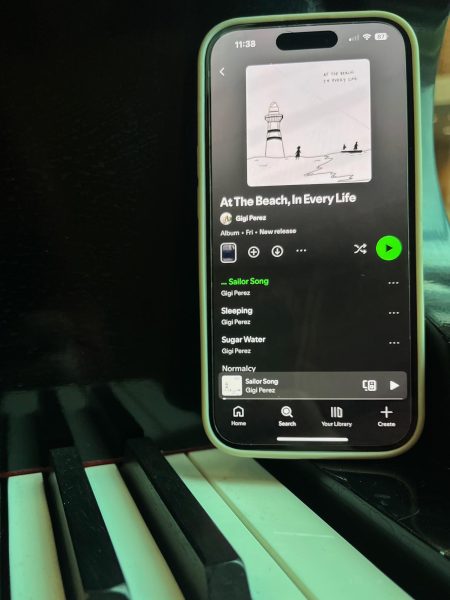Learning from your failures
I’ve lost. These two little words are a sentence that few of us can say without at least grimacing. Some people can’t say it at all.
I’ve lost. It doesn’t matter if it’s a game or a political race, each of us will have to face the idea of losing eventually — many of us already have.
Say it with me: I’ve lost.
Recently, I’ve been reading a fanfic (don’t judge) that got into the idea of forcing its main character to learn how to lose. The character couldn’t admit defeat — this made him dangerous to not only himself and others. Sometimes surrender is the safest and smartest move.
But we as a society have trouble separating losing from giving up. Whether it’s a battle on the hockey rink or in a war zone, giving up is not something people talk of lightly. Losing is the step toward giving up, we’re told. Losing means that you’ve given up.
But it doesn’t have to. To continue the sports analogy, losing is not winning the big game. Giving up is never picking up a hockey stick again. One is temporary, the other is a permanent decision.
We can’t always win — but we can always try again. We each need to learn how to lose, how do so gracefully and how to know when losing is the smartest choice. This is usually a one-time lesson. Losing doesn’t get easier, but we develop the coping mechanisms to deal with it.
Giving up, well that’s a whole different level. Giving up is permanent. This does not mean it isn’t appropriate in some circumstances, but giving up leads to much more strain than losing. It is admitting that trying will no longer benefit. That effort is only wasted to keep pursuing that particular goal.
Where losing is often the result of outside forces (save for the case of surrender), giving up is completely internal. It is a conscious decision, even if made on a whim without any long-term consideration. It is why it is so much easier to give up than to lose. Giving up still keeps you in power, at least internally — losing often strips you of what little control you had.
This may seem like the ramblings of a tired English major, debating the semantics of words while trying to reach a required word count so she can just go to bed. And though I won’t deny the tired or the English major part, I do have a point.
Personally, this has been the hardest semester of my life. Don’t worry, I won’t list my woes for you here — suffice it to say that I will have to settle for grades that are far below my normal personal standards.
Because of many reasons, some my fault, others most decidedly not, I’ve lost this semester. I’ve been beaten. By what, that’s a little harder to name, but the fact stands: I’ve lost.
I found myself in front of a decision I’ve never once seriously considered — dropping out permanently. Even when I took a special circumstances withdrawal thanks to a bad round of pneumonia, I always knew I’d be back. But this time … this time I was trying to decide if it was time to do more than just lose, but to give up. I’ve decided not to give up — I’m close enough to the finish line that it’s worth the effort. But for the first time in my life, I was forced to actually consider what I’d always believed the impossible for me: not getting a college degree. It was eye opening, to say the least.
See, even though this is my story, and my problems, the lesson doesn’t have to be mine alone. Sometimes we have to lose. Sometimes we have to consider giving up completely. It is the question ever politician faces after he or she lose a race, especially when he or she concedes before the final vote is in (even if the winner is obvious) — does he or she give up and never try to change things ever again, or does she keep pushing?
The same goes for larger scale events as well. It comes down to finding balance and humility. Sometimes, we have to admit that something’s gotta give. We always must remember that we, neither as individuals nor as societies, are fallible. Sometimes our plans blow up in our faces. Sometimes the enemy is just too strong. Sometimes it is wiser to give up. Sometimes it is wiser to lose and get back up. The choice is yours, however. I’ve already made mine.
Kjerstine Trooien is a staff writer for The Dakota Student. She can be reached at kjerstine.trooien@my.und.edu.






